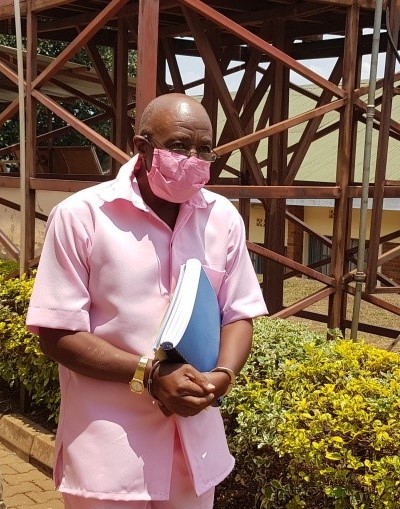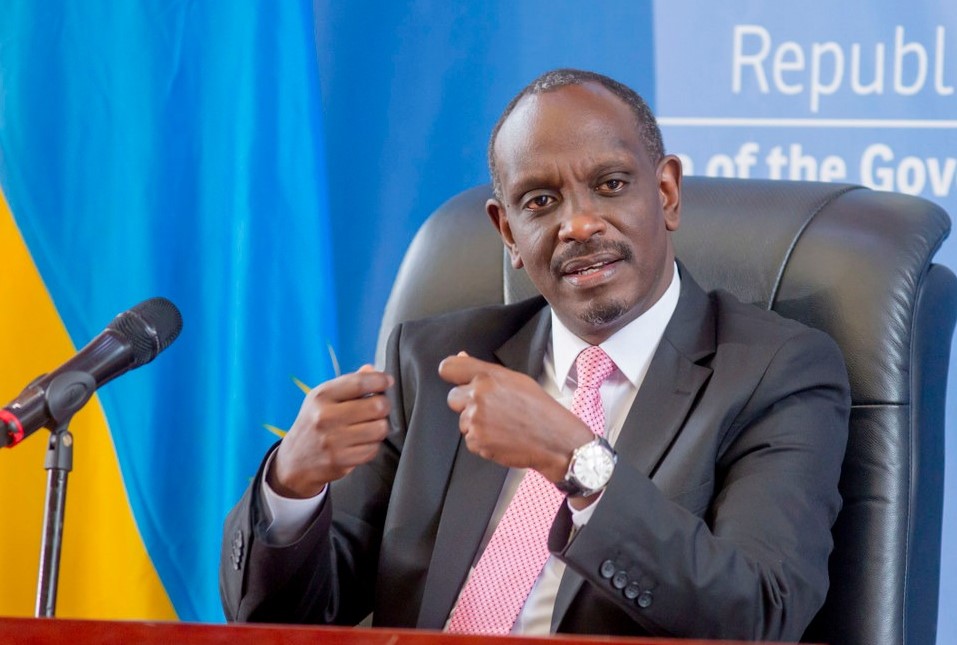Regional
Rwanda must not bow to pressure to release terror kingpin Rusesabagina

Nearly
a month after the trial and conviction of Paul Rusesabagina who was sentenced
to 25 years for terrorism committed on Rwanda soil, his backers frantically continue
to call for his release. The latest to enter the fray are members of the
European Parliament (MEPs) who, on September 7, voted a resolution which stated
that “(they) strongly condemn the illegal arrest, detention and conviction of
human rights defender Paul Rusesabagina in Rwanda, which they say violates
international and Rwandan law.”
The
resolution, seen by many Rwandans and neutral observers, as an ultimatum
ordering the Rwandan government to free Rusesabagina immediately, regardless of
the serious charges against him, was adopted by 600 lawmakers. Two opposed it
and 18 abstained.
What’s
not surprising is the way these MEPs resorted to the same tactics of sanitizing
this terror kingpin by reminding people of his Hollywood credentials as “a
Belgian citizen and U.S. resident who was recounted in the 2004 film Hotel
Rwanda,” and completely ignoring the plight of the victims of the terror
campaign he waged. Note how they call him “a human rights defender,” which is
odd given his involvement in terrorism activities on Rwandan territory. It is
as if being Belgian, or a U.S resident, is a carte blanche for Rusesabagina to
plot to seize power in Rwanda using “all means,” as he declared, by funding
terror groups and forming his own armed outfit.
They
also whitewashed the criminality of these groups by labeling them “a coalition
of opposition political parties and its military wing,” as if for them, a group
which ambushed and killed passengers on buses, attacked villages, and killed
innocent civilians deserved any respect at all as a political force. What these
MEPS forget to mention is that evidence collected from both Belgian Prosecution
and the FBI, exposed in court, revealed that Rusesabagina sent thousands of
Euros to the genocide-linked FDLR, a terrorist outfit recognised as such by the
United Nations.
It
is also preposterous to conclude that the case of Rusesabagina exemplifies “the
human rights violations” taking place in Rwanda and consequently call into
question the verdict against him. For these MEPs, it is as if fair trial is
only the preserve of western courts, which means that Rwanda doesn’t have the
right and the means to try its criminals. People saw in this attitude a relic
of the outdated colonial mentality and white supremacist at play.
The
trial took place in public. Proceedings were broadcast live and translation was
availed in the presence of foreign diplomats, and representatives of NGOs.
Evidence came from the 20 co-accused including senior officers of his armed
terror group, and an American professor, Dr Michelle Martin who worked with and
monitored his activities connecting extremist Hutu Power groups and terrorist
organizations.
Nevertheless,
these legislators ignored all the evidence, some of it collected from their own
governments and advanced falsehoods and lies peddled all along by
Rusesabagina’s family, his lobbyists, and the organizations which catapulted
him to fame. One MEP, Els Van Hoof, went too far and threatened to re-orient
foreign aid from the Rwandan government, and using other channels so that it
can still benefit the population.
Her
colleague, MP Tom Vendenkendelaere, also reminded everyone that Rusessabagina
was a Belgian national, saying the trial of his fellow countryman was not fair.
“The EU cannot remain silent on this matter. He needs to be released
urgently.” One wonders how a Belgian
national would create and fund an armed terrorist organisation to overthrow a
government and become president. Is it back to the 1960s where foreign powers
were backing mercenaries like Bob Denard to conduct coup d’états in Africa? Do
these MEPs really support a return to this hideous past?
For
Olivier Mushimire, a Rwandan blogger, “it is also self-contradictory
performance on their (EU MEPs) part to describe Rusesabagina as a European
citizen, and a political opponent of the Rwandan government in the same
statement.” Martin Ngoga, Speaker of the East African Legislative Assembly and
former Rwandan Prosecutor General found the EU Parliament’s call for
Rusesabagina’s release, a political directive (and) not a suggestion to further
judicial review. Ngoga noted: “Which
system would have a standard procedure to grant this? The call undermines some
norms you are purporting to defend. Attack on norms is abuse of political
platform.”
Whatever
noises the MEPs and others make about Rusesabagina, pressure on Rwanda to
release a terror convict will not work. Like President Paul Kagame noted, on
October 12, Rwanda will not trade off the security of its own people.


